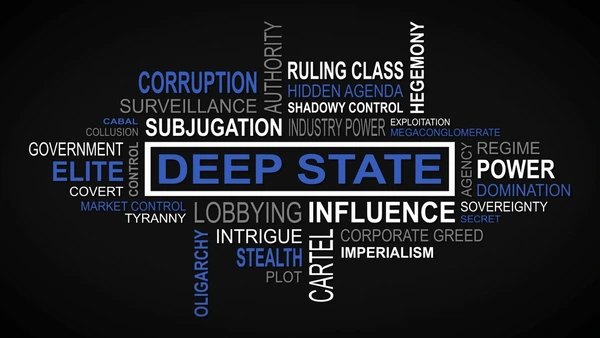
The Origin of the Term “Deep State” and Its Rise in U.S. Politics
The term “deep state” has evolved significantly since its inception, becoming a focal point in political discourse, particularly in the United States. Understanding its origins, how it gained traction in American politics, and its relevance today requires a deep dive into both historical context and contemporary implications.
Origins of the Term “Deep State”
The phrase “deep state” (or derin devlet in Turkish) first surfaced in Turkey during the late 20th century. It referred to a clandestine network within the Turkish government that allegedly operated outside the democratic framework, composed of military officials, intelligence agents, and organized crime figures. This network was believed to engage in extrajudicial activities to maintain political stability and suppress dissent, particularly during the conflicts involving Kurdish insurgents in the 1990s.The concept gained notoriety through various scandals, such as the Susurluk scandal in 1996, which revealed connections between state officials and organized crime. This event exposed the dark underbelly of Turkish politics, where covert operations often bypassed legal oversight and democratic accountability.
Peter Dale Scott’s Contribution
In the United States, the term was popularized by Peter Dale Scott, a political analyst and former professor at the University of California, Berkeley. In his book The American Deep State: Big Money, Big Oil, and the Struggle for U.S. Democracy, Scott argues that a hidden network influences U.S. policy, often contrary to public interest. He traces this phenomenon back to post-World War II America, highlighting how events like the assassination of President Kennedy and the September 11 attacks contributed to an increasingly militarized and secretive government structure. Scott’s work laid the groundwork for understanding how these hidden forces operate within American democracy, suggesting that they encompass both governmental institutions and private interests aligned with national security agendas.
The Deep State in U.S. Political Discourse
The term “deep state” entered mainstream political rhetoric during Donald Trump’s presidency. Trump frequently claimed that a “deep state” was working against him, alleging that entrenched bureaucrats within federal agencies were obstructing his agenda. This narrative resonated with many of his supporters who felt disillusioned with traditional political structures. Trump’s administration characterized itself as engaged in a battle against this so-called deep state, promising to “drain the swamp” by dismantling what he described as an entrenched establishment resistant to change. His rhetoric framed the deep state not just as an abstract concept but as a tangible adversary undermining his presidency.
Controversies and Conspiracies Surrounding the Deep State
The deep state has become a catch-all term for various conspiracy theories suggesting that powerful elites manipulate government policies behind the scenes. Critics argue that such theories distract from legitimate political discourse and undermine public trust in democratic institutions. For instance, allegations of election interference or government overreach often get labeled as actions of the deep state without substantial evidence. Moreover, Trump’s approach to governance—characterized by attempts to consolidate power within the executive branch—has raised concerns about his intentions regarding federal agencies. Some analysts suggest that rather than dismantling a deep state, Trump aimed to create one aligned with his political objectives. This perspective posits that Trump’s administration sought to weaponize government agencies against perceived enemies rather than reform them.
Relevance of the Deep State Today
As of 2024, discussions around the deep state remain highly relevant amid ongoing political polarization in the U.S. The term is frequently invoked in debates about government accountability, transparency, and civil liberties. With Trump’s recent electoral success and promises to further “clean out” what he perceives as a deep state within federal agencies, these discussions are likely to intensify. The concept continues to resonate with segments of the population who feel alienated from traditional politics and distrustful of government institutions. This sentiment is compounded by ongoing controversies surrounding issues like surveillance practices, intelligence agency operations, and corporate influence over politics—elements that many associate with deep state activities.
Conclusion
The evolution of the term “deep state” from its origins in Turkey to its current status in American political discourse reflects broader themes of power dynamics and accountability within governance. While some view it as a legitimate critique of entrenched interests undermining democracy, others dismiss it as mere conspiracy theory. As political landscapes shift and new administrations take shape, understanding this term’s implications will be crucial for navigating contemporary debates about governance and democracy in America.In summary, whether viewed through a lens of skepticism or concern for democratic integrity, the discussion surrounding the deep state remains a hot topic—one that encapsulates fears about transparency and accountability in an increasingly complex political environment.
For more Breaking news and updates, click here.
Connect with us on X/Twitter here.



